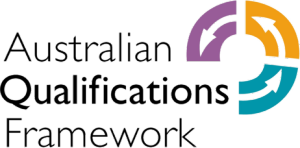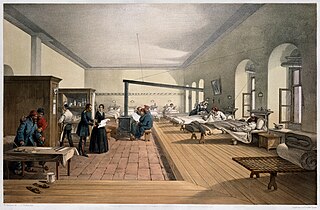Related Research Articles

Vocational education is education that prepares people for a skilled craft as an artisan, trade as a tradesperson, or work as a technician. Vocational education can also be seen as that type of education given to an individual to prepare that individual to be gainfully employed or self employed with requisite skill. Vocational education is known by a variety of names, depending on the country concerned, including career and technical education, or acronyms such as TVET and TAFE.

The National Tertiary Education Union (NTEU) is an Australian trade union for all higher education and university employees. It is an industry union, and the only union working exclusively in the Australian university sector.
Academic administration is a branch of university or college employees responsible for the maintenance and supervision of the institution and separate from the faculty or academics, although some personnel may have joint responsibilities. Some type of separate administrative structure exists at almost all academic institutions. Fewer institutions are governed by employees who are also involved in academic or scholarly work. Many senior administrators are academics who have advanced degrees and no longer teach or conduct research.

The Australian Qualifications Framework (AQF) specifies the standards for educational qualifications in Australia. It is administered nationally by the Australian Government's Department of Industry, with oversight from the States and Territories, through the Standing Council of Tertiary Education Skills and Employment. While the AQF specifies the standards, education and training organisations are authorised by accrediting authorities to issue a qualification.
The Association of Higher Education Professionals (AHEP), formerly known as the Association of University Administrators (AUA), is the professional body for higher education administrators and managers in the United Kingdom and Republic of Ireland. As of 2023, its membership comprised several thousand individuals, representing 300 institutions from the UK and 21 countries worldwide.
These organizations for higher education have a common purpose and mission for advocacy in numerous areas of both institutional management and the general public interest. The organizations have specific purpose for issues from faculty unionization to public policy research and service to institutions. Most are focused on the organization and governance of higher and tertiary education, but some are involved in service and research at all levels of education.
Governance in higher education is the means by which institutions for higher education are formally organized and managed. Simply, university governance is the way in which universities are operated. Governing structures for higher education are highly differentiated throughout the world, but the different models nonetheless share a common heritage. Internationally, tertiary education includes private not-for-profit, private for-profit, and public institutions governed by differentiated structures of management.
The Australasian Society for Computers in Learning in Tertiary Education, also known as ASCILITE is an incorporated not-for-profit professional association for those engaged in the educational use of technologies in tertiary education. The association, which was incorporated in the state of South Australia in 1987 is governed by the ASCILITE constitution and by-laws in accordance with the Associations Incorporations Act 1985.

Health administration, healthcare administration, healthcare management or hospital management is the field relating to leadership, management, and administration of public health systems, health care systems, hospitals, and hospital networks in all the primary, secondary, and tertiary sectors.
Higher education accreditation is a type of quality assurance process under which services and operations of post-secondary educational institutions or programs are evaluated to determine if applicable standards are met. If standards are met, accredited status is granted by the agency.

Philip R. Brown is an internationally recognised and presented higher education leader, administrator and educator with extensive experience in providing independent advice to governments, school systems and other educational entities within the United States, Australia and the United Kingdom. Dr Brown has served as CEO/Dean, Nova Higher Education; as CEO, Institute of Health & Management, as Dean Le Cordon Bleu Australia; as CEO/Academic Director, UC College at the University of Canberra, Australia; and as Principal (President), Newbold College of Higher Education, UK. Brown is recognised and presented as a Principal Fellow of the Higher Education Academy for his very extensive experience in leading, as well as delivering, learning and teaching in higher education. He is recognised as a Fellow by the Australian College of Educators "for innovative leadership in establishing teaching as a profession through roles as author, consultant, teacher, assistant principal, principal and president of a professional association." Brown lives in Sydney, Australia.
The Queen's Birthday Honours 2014 were announced on 9 June 2014 by the Governor-General of Australia, Sir Peter Cosgrove.
The Queen's Birthday Honours 2015 for Australia were announced on 8 June 2015 by the Governor-General, Sir Peter Cosgrove.
The Queen's Birthday Honours 2008 were appointments in the Australian honours system to recognise and reward good works by citizens of Australia and other nations that contribute to Australia. The Birthday Honours are awarded as part of the Queen's Official Birthday celebrations and were announced on 8 June 2008 in Australia.
The 2018 Australia Day Honours are appointments to various orders and honours to recognise and reward good works by Australian citizens. The list was announced on 26 January 2018 by the Governor General of Australia, Sir Peter Cosgrove.
The 2018 Queen's Birthday Honours for Australia were announced on 11 June 2018 by the Governor-General, Sir Peter Cosgrove.
Open access in New Zealand consists of policies and norms affecting making research outputs, data, and education materials openly available. This is influenced by tertiary education institutions as well as national government and changing international norms. The New Zealand Government has applied open access principles to its own work, adopting the New Zealand Government Open Access Licensing Framework (NZGOAL). It has not mandated that these apply to schools or the tertiary sector or to research funding agencies. Some tertiary education institutions have developed their own open access guidelines or policies but neither of the two major research funding agencies in New Zealand—the Marsden Fund and the Health Research Council—have done so, unlike Australia, Canada, Europe or the United States.
The 2022 Australia Day Honours are appointments to various orders and honours to recognise and reward good works by Australian citizens. The list was announced on 26 January 2022 by the Governor General of Australia, David Hurley.
The 2022 Queen's Birthday Honours for Australia were announced on 13 June 2022 by the Governor-General, David Hurley. The Birthday Honours are appointments by some of the 15 Commonwealth realms of Queen Elizabeth II to various orders and honours to reward and highlight good works by citizens of those countries. The Birthday Honours are awarded as part of the Queen's Official Birthday celebrations during the month of June.
The 2024 Australia Day Honours are appointments to various orders and honours to recognise and reward good works by Australian citizens. The list was announced on 26 January 2024 by the Governor General of Australia, David Hurley.
References
- ↑ Incorporation number AO3376 under the Australian Capital Territories Registrar of Incorporated Societies.
- ↑ "Association for Tertiary Education Management". Journal of Higher Education Policy and Management. Routledge. 20: 103–191. 1998. doi:10.1080/1360080980200111.
- ↑ Conway, Maree, 'The 30th Anniversary History of ATEM: “Inherent Uncertainty,”' 2006, p. 46, "Archived copy" (PDF). Archived from the original (PDF) on 2009-10-04. Retrieved 2010-09-22.
{{cite web}}: CS1 maint: archived copy as title (link) - ↑ "About ATEM Inc - ATEM". Archived from the original on 2002-10-04. Retrieved 22 September 2010.[ title missing ]
- ↑ Conway, Maree. 'Defining administrators and new professionals.' Perspectives, Volume 4, Number 1, 2000: pp. 4-5.
- ↑ Gornall, L. (1988) `New professionals’: changes and occupational roles in higher education. perspectives, 3(2), pp. 44-49.
- ↑ Conway, Maree and Ian Dobson. 'Fear and Loathing in University Staffing: The Case of Australian Academic and General Staff.' Journal of Higher Education Management and Policy, Volume 15, No. 3,: pp. 123.133.
- ↑ "About Us - ATEM".
- ↑ http://www.atem.org.au/uploads/content/105-2010-About-ATEM-flyer.pdf%5B%5D
- ↑ ATEM Constitution, as adopted by the Annual General Meeting 25 September 2007 with effect from 1 January 2008, accessed 22 September 2010, "Archived copy" (PDF). Archived from the original (PDF) on 2009-10-04. Retrieved 2010-09-22.
{{cite web}}: CS1 maint: archived copy as title (link) - ↑ "About Atem Inc - ATEM - Association for Tertiary Education Management Inc". Archived from the original on 2010-09-21. Retrieved 2010-09-22.
Giles Pickford ‘The Birth of an Organisation: ATEM and the principle of subsidiarity, love and other ideals’ Journal of Higher Education, Policy and Management. Vol. 25, No. 1, May 2003